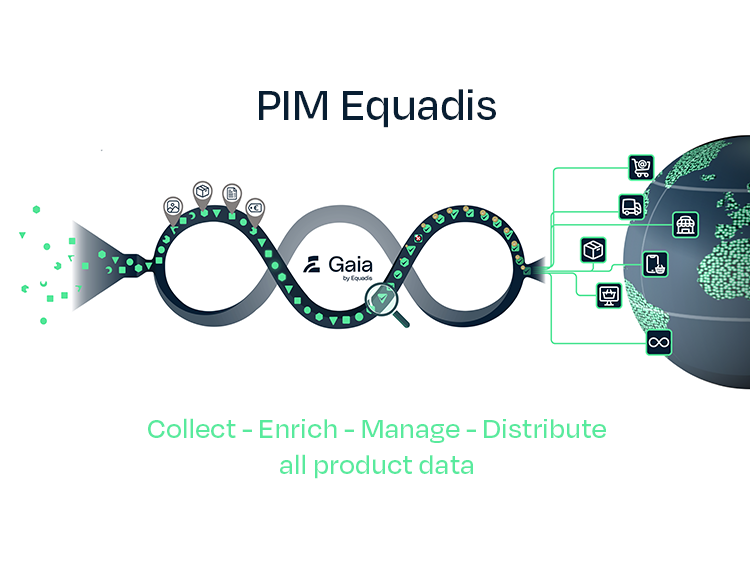
Published on March 4, 2024

In a world as connected as ours, companies, particularly those in the retail sector, can’t afford to overlook the importance of an omnichannel strategy. But it’s essential to know what kind of omnichannel strategy to deploy for your own needs, while adapting to the expectations of your target market. Here’s how.
No, omnichannel is not one of those trends that blow over quickly – quite the contrary. It is gradually reshaping the business objectives of companies that have no choice but to integrate it.
In the retail sector, the need is even greater. Today, more than half of all consumers (55.2%) are omnichannel enthusiasts, according to a ShipStation and Packlink study. However, this trend should not overshadow the fact that the culture of the physical store is still very much alive among consumers. Consumers see digital as a complementary tool to physical retailing, rather than as an innovation designed to replace
Ghislain Esquerre, CEO of Equadis, states in an article published in LSA that: “For many retail players, an omnichannel srategy is above all about sales. This is a restrictive vision, since it does not address all the channels used to establish a relationship with the consumer. Focusing solely on sales means neglecting channels of influence and reassurance that are not linked to an act of purchase.”
For retail players and brands in particular, “omnichannel” describes a number of realities, all equally important. Among these are the major, unavoidable aspects:
Understanding omnichannel retail strategies involves dealing with a wide range of targets that need to be segmented according to a brand’s objectives, needs and the types of persona they wish to reach.
There’s no point in trying to reach everyone in the same way across all channels: this approach is pointless, if not counterproductive. So the first step is to segment customer profiles, including :
These few examples are obviously non-exhaustive, but they do illustrate the need to introduce segmentation into a brand’s omnichannel strategy at a very early stage.
This will make it easier to adapt the brand message from one channel to another, thereby creating another, even finer, form of segmentation.
In all cases, developing an omnichannel approach that is tailored to your targets, while at the same time intelligently evolving, requires a considerable investment of resources. And the players in the retail sector are well aware that it is essential to be well-equipped to successfully implement such an approach.
When a brand has different product ranges, it reaches different targets across a number of channels. As a result, they cannot manage their omnichannel deployment without a digital solution. As a multi-sector expert in product data, Equadis offers the only omnichannel PIM on the market.
With its expertise at the heart of retail, Equadis already supports more than 14,000 brands and retailers in the management and omnichannel distribution of their product data.
A PIM, or Product Information Management is a software solution designed to collect, exploit, enrich and distribute product-related information. This data concerns :
Choosing the Equadis PIM allows you to build and optimise your omnichannel strategy thanks to several major benefits:
At Equadis, we know that this kind of approach can be a long and complex process to integrate into your organization.
This is why we put in place an omnipresent human support through the presence of a CSM (Customer Success Management) expert, unique for each of our collaborations. His or her expertise and attentiveness provide peace of mind and trust in understanding the omnichannel strategy at the heart of the Equadis PIM.
The Equadis method means: a 98% customer satisfaction rate over the last 5 years.
To find out more, contact our teams today:

Published on March 4, 2024

Published on April 24, 2024

Published on March 15, 2023

Published on March 4, 2024

Published on March 15, 2023

Published on April 24, 2024